Japan, the second largest economy in Asia, has downplayed statements claiming that Japan will immediately seek to cut oil imports from Iran.
South Korea has also warned that its economy, the fourth in Asia, will be affected if it stops buying oil from Iran.
U.S. Treasury Secretary Timothy F. Geithner held talks with Chinese leaders, including Premier Wen Jiabao and Vice President Xi Jinping, pressing Beijing to limit oil imports from Iran. In his tour of Japan, Geithner also put pressure on Tokyo to cut its oil imports from Iran.
India to buy Iran oil despite U.S. sanctions
India said it will keep doing business with Tehran and sees no reason to seek a waiver from the United States that would protect buyers of Iranian oil from a fresh round of sanctions, a senior Indian cabinet minister said on Thursday.
"Why should we seek waiver from the U.S.? We have done business with Iran earlier and will continue to do business," the minister, who has knowledge of the matter but did not want to be named as the issue is confidential, told Reuters.
The minister said government officials would visit Iran next week and find ways to pay for oil in light of U.S. financial measures designed to block the trade.
Other major buyers of Iranian crude such as Japan and South Korea do intend to secure waivers.
The sanctions have faced India with a dilemma as it strives to balance the need to keep importing about $12 billion of Iranian crude annually without upsetting ties with Washington.
A different senior Indian official said on Thursday a final decision on whether to seek a waiver had not yet been made and would depend partly on the outcome of next week's trip to Iran.
Options being looked at to cope with the U.S. measures include payment in Indian rupees or a trade barter system, the official said.
Officially the Indian government says it has not asked refiners to reduce imports from Iran.
The Indian delegation including officials from the central bank and the finance ministry will visit Tehran from Jan. 16-21 to explore alternative routes of payment to ensure supplies without breaching sanctions.
"This (is) a technical issue but I am confident they will find a solution and a payment mechanism option soon," the Indian minister said.
India, Iran’s largest oil buyer after China, imports about 12 percent of its oil needs, or 350,000-400,000 barrels per day, (bpd) from Iran.
Japan plays down pledge to cut Iran oil imports
Meanwhile, Japanese Prime Minister Yoshihiko Noda backed down from earlier comments by his finance minister that Japan was ready to cut oil imports from Iran immediately, WSJ reported.
"I think he was stating his personal forecast of how things would develop going forward," Mr. Noda said at a news conference, when asked about comments by Finance Minister Jun Azumi.
Mr. Azumi told visiting U.S. Treasury Secretary Geithner on Thursday that Japan wanted to further reduce its 10% dependency on Iranian imports "as soon as possible in a planned manner."
But Mr. Noda, speaking to reporters after he carried out a small reshuffle of his cabinet, said measures that Japan may take against Iran would be decided after officials held talks with U.S. counterparts who will be in Japan next week.
After Mr. Azumi made the comments, unusually forthright for a Japanese minister, his colleagues rushed to play them down.
Foreign Minister Koichiro Gemba earlier Friday characterized Mr. Azumi's remark as a "prediction," while the government's top spokesman, Chief Cabinet Secretary Osamu Fujimura, described them as just "one opinion."
Mr. Azumi also appeared to soften his stance, saying Friday that it is too early to say when and by how much Japan will reduce Iranian oil imports under pressure of possible U.S. sanctions.
Any cut in imports of crude oil is a vital issue for Japan, which depends entirely on imports for the oil it consumes.
While Iranian imports accounted for nearly 10% of all oil imports in 2010, the supplies have taken on greater significance as Japan is relying more on thermal power plants for its electricity following the March disaster at the Fukushima Daiichi nuclear plant.
Many nuclear reactors taken offline for maintenance have not been restarted as they await clearance of stress tests imposed following the Fukushima accident.
Snub from China
China is the largest importer of Iranian oil and has openly dismissed the U.S. sanctions, South Asian News Agency reported. Much more than oil, China has almost $120 billion investments in Iran which it would be concerned about.
Geithner’s efforts to tighten economic sanctions on Iran have faced China’s snub.
China has criticized U.S. sanctions against Iran, approved by President Barack Obama on New Year's Eve, as improper and ineffective.
China, the world's biggest energy consumer, depends on Iran for 11 percent of its oil imports.
Turkey says not bound by U.S. sanctions against Iran
Turkey, a U.S. ally that relies on Iranian oil and gas imports, signaled Thursday that it will not comply with American sanctions against Iran, AP reported.
Turkey indicated that it will only enforce sanctions that have been approved by the United Nations, and its announcement is a setback to U.S. sanctions.
Japan imports about 10 percent of its oil from Iran, while Turkey imports about 30 percent from Iran.
"Turkey does not feel it is bound by any sanctions taken unilaterally or as a group, other than those imposed by the United Nations," Turkish Foreign Ministry spokesman Selcuk Unal told a news conference, which followed a meeting between Foreign Minister Ahmet Davutoglu and Iran's parliamentary speaker, Ali Larijani.
"Right now, our import is continuing and as of there is no change to our plans," Energy Minister Taner Yildiz said on Thursday.
Iran sanctions to affect South Korea economy
Meanwhile South Korea’s vice finance minister said South Korea’s economy will probably be affected by increasing sanctions on Iranian oil exports.
“We import 10 percent of the oil from Iran so it will be some impact,” Shin Je Yoon said in an interview with Bloomberg Television.
Iran is South Korea’s fifth-largest supplier of crude and accounted for 9.4 percent of its total imports in 2011, the government said last week.
“I think 10 percent is not a small number,” Shin said.
South Korea is working with counterparts abroad and “it’s too early to say” what the specific approach will be on Iran imports, he said.
Pakistan not limiting Iran trade
Pakistan's President Asif Ali Zardari says Islamabad will not limit trade relations with Iran under pressure from Washington, Press TV reported.
In an interview with Geo news channel, Zardari said Pakistan has no choice but to seek greater ties with its neighbors - Iran, China, India and Afghanistan - "because the economies of the West are in trouble and not in a position to help U.S."
In a clear reference to fresh U.S. sanctions against Iran and tensions stemming from Tehran's threat to close the Strait of Hormuz which connects the Persian Gulf to the Sea of Oman, Zardari said Pakistan will not be drawn into new American "theaters of war" in the region.
Pakistan's chief executive further added that his government's priority is to meet the needs of “our population of nearly 200 million people."
"We will not limit our commercial relations with any country because of the political whims of any outside power," he added.
Instead, he said, Pakistan will accelerate the construction of a natural gas pipeline from Iran to plug a supply shortfall that in December brought the country's economy to a near standstill.
The U.S. has repeatedly urged Pakistan to reconsider its plans to import natural gas from Iran's South Pars gas field, which is the world's largest deposit of natural gas.
HL/PA
END
MNA


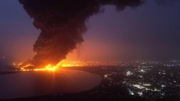



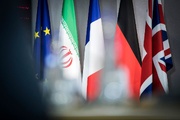


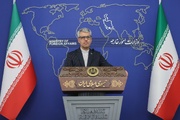
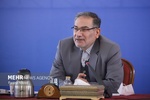
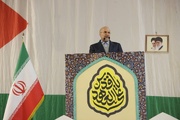



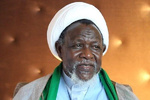




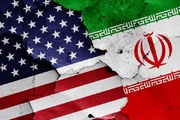




Your Comment